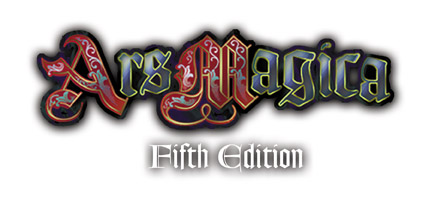Social Organization
| Ars Magica Primer | |
|---|---|
 | |
| Game Setting | |
| Mythic Europe | |
| The Order of Hermes | |
|
The Order of Hermes The Code of Hermes The Peripheral Code Hermetic Book Cycle |
Back to Mythic Europe
Western Christendom
The population is traditionally divided into The Nobility, The Church and Those who Work, who are largely the peasantry (those who till the land) and are commoners. Commoners living in the countryside are divided into the freemen, the serfs and slaves (a Christian cannot be a slave according to the Church):
- Freemen
- Free peasants - these hold land from the Lord of the Manor but are free to leave
- A Yeoman holds sufficient land to provide an armed man for service to the lord of the manor. Typically a yeoman holds around 40 acres.
- Townsmen - the rise of towns and cities has seen a new "middle-class" forming of free townsmen, who do not work on the land but rather work as craftsmen or service providers.
- Free peasants - these hold land from the Lord of the Manor but are free to leave
- Serfs - these are not free but tied to the land, though they are not slaves. Typically, they rent land from their lord and pay for this with a combination of cash (usually a small proportion of their rent), labour and produce. They are divided into sub-classes, the most common of which are:
- Villeins - those that rent significant areas of land, sufficient to support their families.
- Cottars - those who hold only a dwelling and small-holding around it; typically an acre or so.
- Ministeriales - in much of the Empire there are unfree Knights known as Ministeriales. These have been elevated by their lords to positions of responsibility but are still, technically at least, bondsmen. The Emperor appoints such men to positions of power and influence: these are de facto free though de jure serfs.
Towns
The form of governance of towns and cities varies widely. Many towns at least in theory are in the control of a local abbey or cathedral, others by a member of the nobility. However, many are now governed by their richer free inhabitants, in fact if not in law.
Countryside
In France, England, Flanders, Burgundy and most of Germany, much of the countryside is divided into manors, governed according to both the laws of the monarch and local laws. In some parts, including near Liége and Namur, there is a trend for villages to gain the adoption of the more favourable law of the nearby town or city.
Eastern Christendom
The social organisation of the Eastern Christendom is similar to that of the west.
Muslim Lands
Muslim lands stretch from the southern half of Iberia, across to Africa and south and east from there as far as is known, though rumours of Christian lands to the south of arab lands occasionally surface. Social class here is poorly understood by those of Western Europe who have not visited there themselves.
Pagan Lands of the North and East
Christianity has reached much of Scandinavia and with it the main features of the feudal system, though not in the same depth. In the far north and east, there is a less formal scattering of local warlords and quite egalitarian communities of free men.